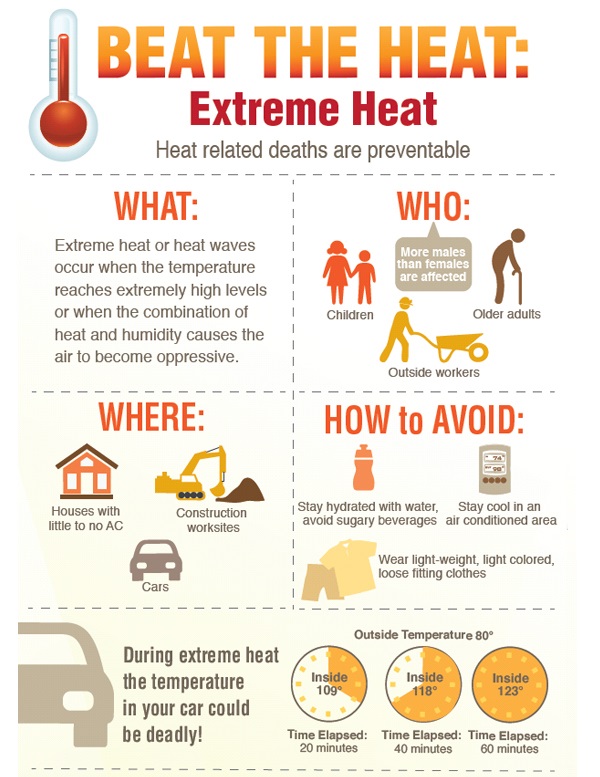Published on May 10, 2022

As Fort Worth enters the hottest period so far this year, it’s a good time to remember that prolonged or intense exposure to high temperatures can cause heat-related illnesses such as heat exhaustion and heatstroke.
So far in May, MedStar crews have treated 18 patients with a primary heat-related illness.
MedStar has a special response procedure when the heat index (“real feel”) temperature climbs to 105 degrees or higher. For patients outside in an unprotected area, the priority of the response is upgraded to limit the patient and responders from exposure to extreme heat.
In addition, MedStar has new ambulances in its fleet that were designed with the Texas heat in mind. The ambulances have three air conditioners — one for the cab, and two for the patient/crew compartment (one for the front and one for the rear of the box).
Tips from MedStar to help stay safe during this early hot spell:
Heat exhaustion occurs when the body loses large amounts of water and salt through excessive sweating, particularly through hard physical labor or exercise. This loss of essential fluids can disturb circulation and interfere with brain function. Symptoms of heat exhaustion may include muscle cramps, paleness, sweating, nausea and vomiting. Children and the elderly are especially susceptible.
Heatstroke is a life-threatening problem that occurs when the body suffers from long, intense exposure to heat and loses its ability to cool itself. Some of the most common signs of heatstroke include confusion, vomiting, alteration in sweating, hot and flushed skin, rapid heart rate, decreased sweating, shortness of breath, decreased urination, increased body temperature (104-106 degrees Fahrenheit) or, potentially, convulsions.
Heatstroke is a medical emergency. If you or someone you know starts experiencing any of the symptoms above, immediately call 911.
While heatstroke and heat exhaustion are common this time of year, they can be easily prevented:
- Hydrate. Drink plenty of water during the day, especially if you are engaged in strenuous activity. Sports drinks are a good choice if you're exercising or working in hot conditions, but water is a good way to hydrate as well.
- Ventilate. Stay in a place where there is plenty of air circulating to keep your body cool. If you are indoors and don't have access to air conditioning, open windows and use a fan.
- Cover up. Wear light-colored and loose-fitting clothing to avoid absorbing the sun's light and trapping heat. Wear a hat to shield yourself from the sun, but once you feel yourself getting warm, remove any items covering your head that can trap heat close to your body.
- Limit activity. Heatstroke can occur in less than an hour when you are participating in strenuous activity on a hot day. If you feel yourself getting hot or light-headed, stop your activity and rest in a cool place out of the sun. Be sure to drink water or a sports drink before, during and after strenuous activity.
- Check on loved ones. The elderly are especially vulnerable to heat related emergencies. Many elderly residents are not aware of how hot it may get in their residence. Call on older friends and family members regularly to assure they are doing OK.
Photo: Courtesy of Centers for Disease Control.
Get articles like this in your inbox. Subscribe to City News.
Article From & Read More ( Tips to keep the heat from beating you down - City of Fort Worth )https://ift.tt/YI1E3C5
Tidak ada komentar:
Posting Komentar